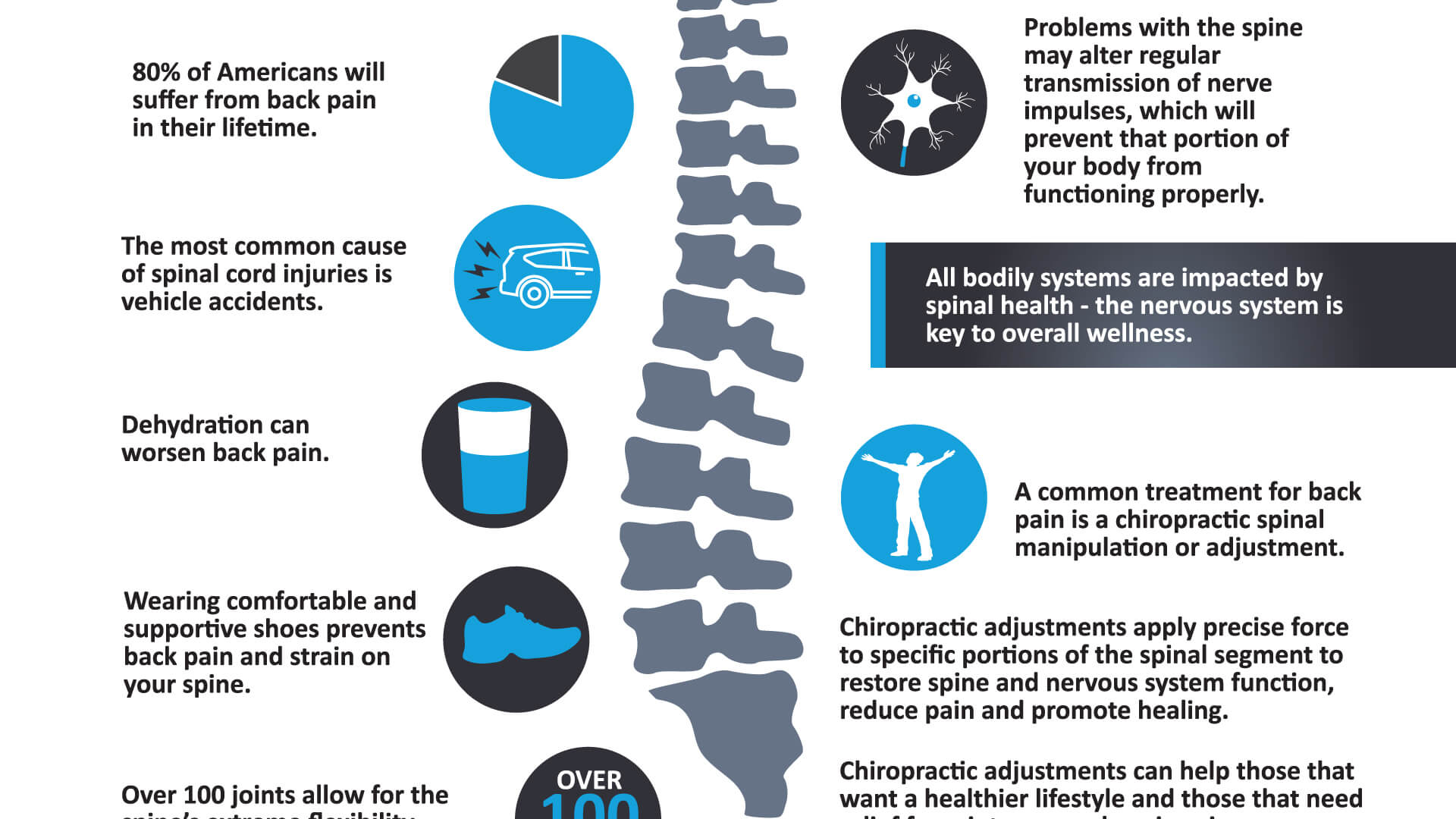Recognizing Nourishment'S Function In Back Pain Monitoring: Beneficial Foods And Foods To Stay Clear Of
Recognizing Nourishment'S Function In Back Pain Monitoring: Beneficial Foods And Foods To Stay Clear Of
Blog Article
Post By-Locklear Wiese
When it concerns managing your neck and back pain, the food options you make can substantially affect how you feel daily. Imagine being able to ease your discomfort simply by readjusting what you eat. By comprehending the role of nutrition in pain in the back monitoring and understanding which foods to incorporate or avoid, you can take positive actions towards a healthier and more comfortable way of living. The link between nutrition and back health and wellness is much more extensive than you might understand-- let's explore just how certain foods can either calm or intensify your back pain.
Importance of Nutrition in Back Pain
Nourishment plays a crucial function in managing neck and back pain. Your diet plan can considerably affect swelling levels and general discomfort levels in your back. Taking in a balanced diet regimen rich in nutrients like vitamins D and K, calcium, magnesium, and omega-3 fats can help in reducing inflammation and reinforce bones, which are necessary for back health and wellness.
Additionally, maintaining a healthy weight via appropriate nutrition can minimize tension on your spine, minimizing the threat of pain in the back.
Additionally, particular nutrients like antioxidants found in vegetables and fruits can assist deal with oxidative tension and promote recovery in the body, consisting of the back muscles and back.
On the other hand, eating too much quantities of processed foods, sweet drinks, and harmful fats can add to swelling and weight gain, worsening back pain.
Foods to Consume for Back Wellness
To support a healthy back, integrating nutrient-rich foods right into your day-to-day dishes is vital. Consisting of foods high in antioxidants like berries, spinach, and kale can help reduce swelling in your back, reducing pain and discomfort. Omega-3 fatty acids found in fatty fish such as salmon and mackerel have anti-inflammatory homes that can profit your back health and wellness.
Additionally, eating nuts and seeds like almonds, walnuts, and chia seeds gives necessary nutrients like magnesium and vitamin E, which sustain muscular tissue function and minimize oxidative anxiety. Incorporating lean healthy proteins such as poultry, turkey, and tofu can help in muscular tissue repair work and upkeep, promoting a strong back.
Do not neglect to consist of milk or strengthened plant-based alternatives for calcium to sustain bone health and wellness. Last but not least, moisturize with lots of water to keep your back discs moistened and functioning optimally. By including https://www.chiroeco.com/aging-feet/ -dense foods in your diet plan, you can nourish your back and support total back wellness.
Foods to Prevent for Pain In The Back
Select avoiding refined foods high in sugarcoated and trans fats when seeking relief from back pain. mouse click the next web site of foods can add to swelling in the body, which may aggravate neck and back pain. Say no to sweet snacks sweet, breads, and sugary beverages, as well as convenience food items like hamburgers, fries, and fried poultry that are typically loaded with trans fats.
In addition, stay away from foods including high levels of refined carbohydrates, such as white bread, pasta, and breads, as they can surge blood sugar levels and possibly intensify inflammation in the body.
It's additionally a good idea to restrict your consumption of foods high in saturated fats, like red meat and full-fat dairy items, as they can add to inflammation. Processed foods like delicatessens meats, chips, and packaged snacks are often high in saturated fats and must be eaten in small amounts.
Conclusion
In conclusion, focusing on your diet plan and making smart food selections can have a significant influence on managing pain in the back. By integrating nutrient-rich foods like berries, fatty fish, nuts, and lean healthy proteins, and avoiding refined and sugary products, you can help in reducing swelling and support in general back health. Remember, what you eat plays a crucial duty in exactly how you feel, so ensure to prioritize your nourishment for a healthier back.
